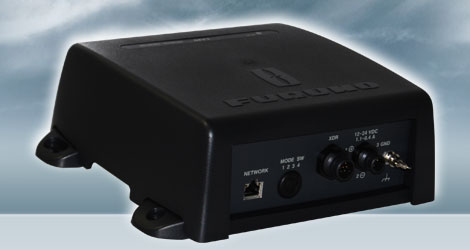Description
The BBDS1 is a new network fish finder for NavNet 3D and NavNet TZtouch that features an all new bottom discrimination function, as well as the FDF (Furuno Digital Filter) capability of the DFF1. The BBDS1 determines the bottom structure and separates them into the following categories: mud, sand, gravel, and rock. This is achieved by analyzing echo characteristics from the bottom components such as particle size and hardness.
Connect the BBDS1 to your NavNet 3D or NavNet TZtouch network and get ready for your NavNet system to provide you with valuable information to locate rich fishing grounds, boosting your catch.
There are two bottom discrimination display modes to select from, Standard Mode and Probability Mode. In Standard Mode, the most probable materials on the bottom (mud, sand, gravel or rock) are indicated in either graphic mode or a 4-color bar on the bottom of the display.
Because bottom material can change frequently and can sometimes be difficult to identify, Probability Mode shows you what material the bottom has the greatest chance of consisting of by displaying the possible bottom materials proportionally within the 4-color bar.
Key Features
Standard Features
- Frequency: 50/200 kHz alternately transmitted
- Output Power: 600 W/1 kW
- Power Supply: 12-24 VDC: 1.1-0.4 A (in output power of 1 kW)
- Temperature : -15 to + 55 degree Celsius (in operation)
- Relative Humidity: 93% at 40 degree Celsius
- Waterproofing: IP20 (not waterproofed)
Required Conditions for Bottom Discrimination
- Detection Range: 5-100 m
- Boat Speed: 0-10 kn
- Transducer mounting: Thru-hull or transom mount only
- MFD8/12/BB software: v2.06 or later
Notes
- The result shown by this function may sometimes be different from the actual bottom components.
- For best performance, do not use in-hull mounted transducers with the BBDS1.
- The BBDS1 may show an incorrect ground discrimination result, especially when there is a big fish school right under the boat. This is because enough echoes may not be received from the bottom.
- Materials such as shell, coral, or a sunken ship are indicated as the most similar material from the four bottom categories: mud, sand, gravel, or rock, according to reflected echoes.
- Auto mode is automatically activated when the bottom discrimination function is turned on. (Manual mode is not selectable.)
- The BBDS1 is not compatible with NavNet 1 or NavNet vx2.
- Appropriate Furuno Transducer recommended for best results
